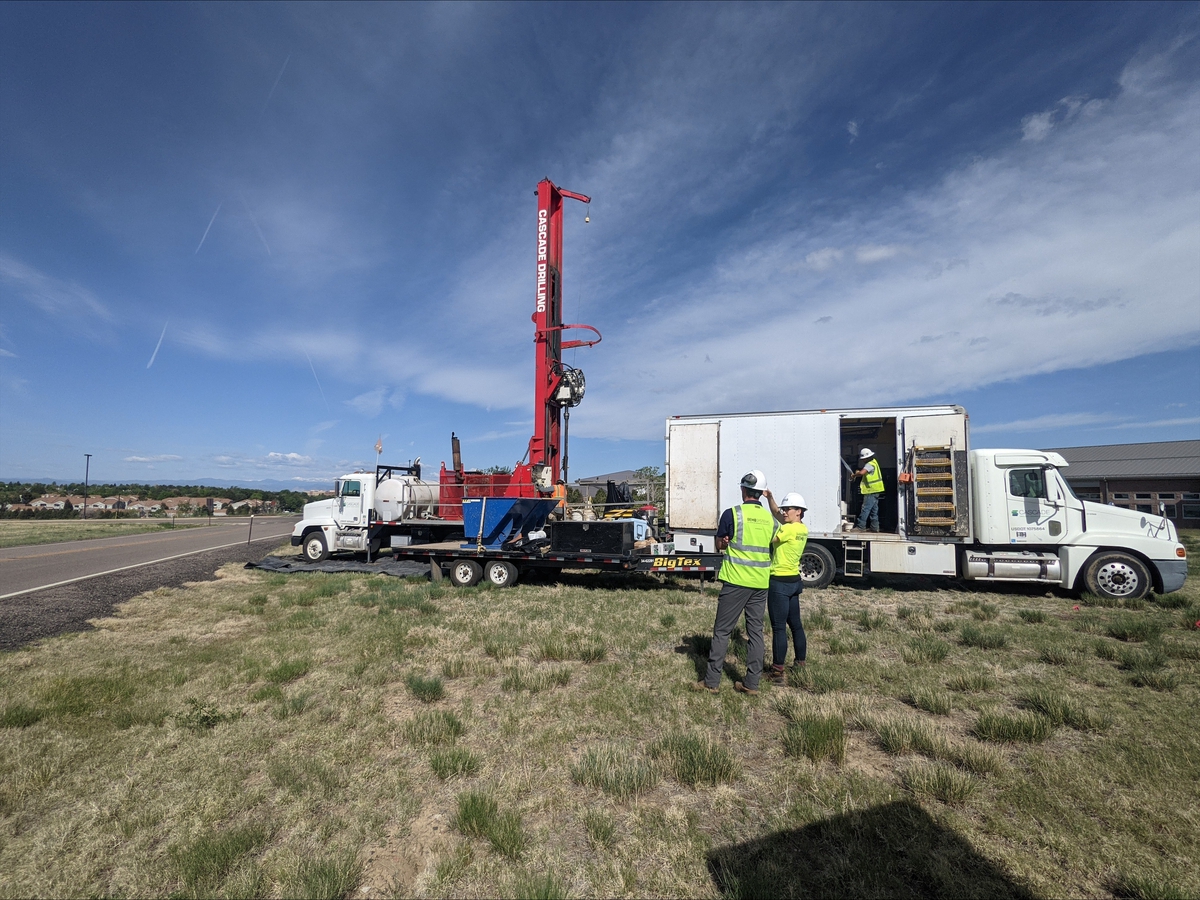
Featured Projects
Basewide PFOS/PFOA Remedial Investigation at Buckley Space Force Base, Colorado

The work for this project included the completion of a PFAS RI of 5 validated AFFF sources areas, evaluation of basewide groundwater and surface water/stormwater impacts, and assessment of the potential for PFAS off base migration at the base boundary to evaluate contaminant migration pathways and contaminant flux. The approach was executed using a TRIAD-like adaptive workflow strategy, whereas the site-specific and base-wide Conceptual Site Models (CSMs) were refined throughout the RI to inform scoping decisions collaboratively with regulatory and Department of Defense (DoD) stakeholders. Data collected under the RI also supported the Human Health and Screening Level Ecological Risk Assessments (BBHRA and SLERA) and bench- and field-scale in-situ stabilization (ISS) treatability studies that were all authorized under the same task order.
The field investigation included advancement of over 160 borings to characterize source soils and groundwater as well as assess downgradient groundwater quality and aquifer properties. Work also included completion of approx. 200 hand auger borings; lithologic logging of approx. 8,300 ft of soil cores; installation and quarterly monitoring of 32 lysimeters; installation of 23 monitoring wells and sampling of over 300 monitoring wells sitewide; installation of 7 groundwater-surface water interaction (GSI) stations and collection of 15 surface water and sediment samples. The result is a robust, high-resolution dataset comprised of more than 1,300 soil, sediment, porewater, and groundwater samples to support high-resolution site characterization, leaching potential, and IDW characterization and disposal. Significant logistical planning was required for subcontractor and vendor mobilizations. Work plans were prepared to support baseline sampling, the treatability study and field-scale testing, and risk assessments – all of which included state regulatory (CDPHE) review. Field efforts utilized sonic and direct push drill rigs to perform aquifer testing via temporary monitoring well construction and slug testing.
BEM was responsible for Project Management, logistical planning, permitting, work plan preparation, coordination with subcontractors, coordination with installation and facility managers, field execution of a wide-variety of sample collection services, health and safety, presentations at AF and regulatory scoping meetings, data validation QC, ERPIMS data entry and uploads, preparation of geospatial deliverables, and technical reporting. Work efforts included the elimination of data gaps to update the CSM to improve the accuracy of evaluating offsite impacts, developing a community response plan, and supporting the HH and ecological risk assessments.
BEM performed a PFAS forensic desktop analysis to distinguish the contribution of a co-mingled groundwater plume from an unvalidated source area. Real-time data review, decision-making, and concurrence were facilitated by an in-house developed online Project Management Dashboard (PMDB) and Digital Conceptual Site Model (dCSM) platform equipped with 3D modelling. The approach streamlined the RI processes by eliminating the need for interim reports, enabling completion of the Phase I RI efficiently, and ranking and prioritizing source areas to inform future remedial design, assessment of off-site migration, and receptor risk. The RI report is under regulatory review and approval.